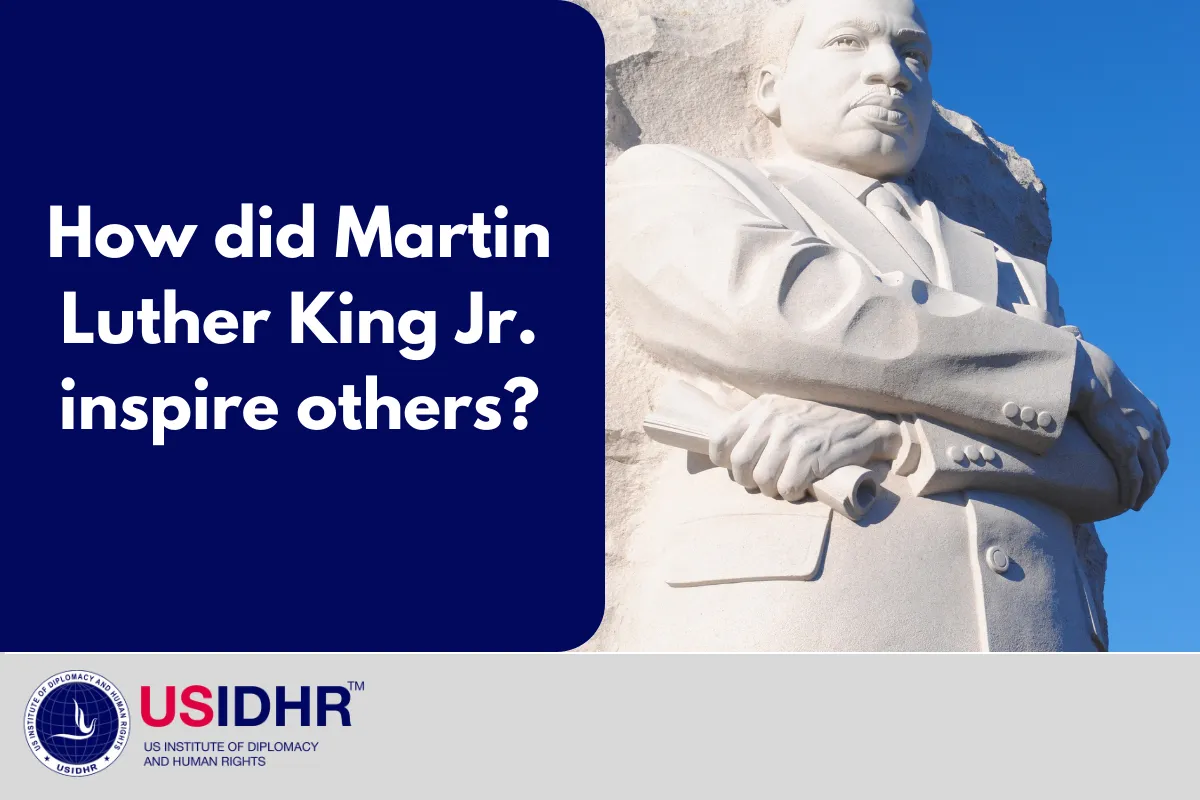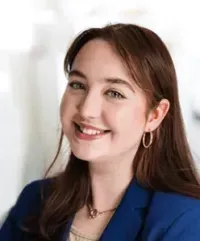
How did Martin Luther King Jr. inspire others?
Martin Luther King Jr. is perhaps one of the most prolific figures of our time and of course, a key activist in the American civil rights movement. King’s iconic speech ‘I have a dream’ is widely remembered, but his dream is still not a reality. Racial segregation is still present globally in many forms and severely reduces the quality of life for people of color. This article will provide you with insight into Martin Luther King Jr’s legacy, the work of Coretta Scott King, and granddaughter, Yolanda King whilst also answering some of the most frequently asked questions about him and his family.
Who is Martin Luther King Jr.?
Martin Luther King Jr. is one of the most influential members of the Civil Rights movement in the mid-1950s (National Geographic, 2020). King Jr. was an integral part of the Montgomery Bus Boycott, and in his earlier life a baptist minister; until being selected as the leader for the Civil Rights Movement in Montgomery, and then the wider South.
What did Martin Luther King Jr. do?
King Jr. was an integral part of the Montgomery Bus Boycott, a founder of the Southern Christian Leadership Conference, and a driving force behind the March on Washington for Jobs and Freedom – where his iconic speech was said (History.com, 2009; The MLK Jr. Research and Education Institute). King was a member of a committee from the Birmingham African-American community that investigated an early case of racial segregation (National Geographic, 2020). The following paragraphs explore his further work in more detail.
Montgomery Bus Boycott
The city of Montgomery was the core of the fight for civil rights in the US. After the act of Rosa Parks, who famously refused to give up her seat to a white passenger on a bus, advocates and activists organized a ‘bus boycott’ lasting 382 days (History.com 2009). Said activists founded the Montgomery Improvement Association to boycott racial segregation, King being selected as the leader (Lewis, 2022). Alongside efforts by the Women’s Political Council, made up of at minimum, 200-plus Black women, the move ‘ignited a certain kind of Southern civil rights movement (Brice, 2020).
The bus boycott was a 13-month protest resulting in the U.S Supreme Court ruling against racial segregation on buses being ‘unconstitutional’ (The MLK Jr. Research and Education Institute). As instructed by King, the end of the boycott was called on December 20th 1956, after the ruling arrived in Montgomery (The MLK Jr. Research and Education Institute).
Are King Jr. and Rosa Parks related?
A frequently asked question is the relationship between Parks and King Jr. The two are not related, but met as a result of King Jr. being selected as the new leader for ‘a new era of black activism’ (History Extra.com, 2019).
Southern Christian Leadership Conference
The Southern Christian Leadership Conference (SCLC), founded in 1957, is a civil rights organization founded by King Jr., Bayard Rustin, Ralph Abernathy, Fred Shuttlesworth, and others (National Park Service, 2021). The success of the bus boycott encouraged the potential expansion of efforts to more cities across the South (The MLK Jr. Research and Education Institute). The organization aimed to provide a more coordinated strategy across the South, and redeem “the soul of America” through ‘nonviolent resistance’ (National Park Service, 2021; The MLK Jr. Research and Education Institute). The first campaign centered on educating ‘disenfranchised voters’, helping communities understand that their chance to improve their quality of life was tied to their ability to vote (The MLK Jr. Research and Education Institution).
March on Washington
The March on Washington, or the March on Washington for Jobs and Freedom, was a protest march occurring in August 1963, amassing 250,000 activists (History.com, 2009). It was here the iconic “I Have a Dream” speech occurred. Members of the SCLC were orchestrating a march for jobs, whilst King Jr. was planning one for freedom; as such the two groups merged their efforts (The MLK Jr. Research and Education Institute).
The iconic “I Have a Dream” speech lasted for 16 minutes and was his first full address to the nation with all three major television networks proposing live coverage (Younge, 2013). One of the most known exerts being.
“I have a dream (Yeah) [applause] that my four little children (Well) will one day live in a nation where they will not be judged by the color of their skin but by the content of their character. (My Lord) I have a dream today. [enthusiastic applause]”
Martin Luther King Jr., 1963; cited Marshall Edu, 2009
President John F Kennedy had never heard one of King’s speeches in its entirety and was struck by both its reach and its vibrancy (Younge, 2013). The speech has later been dubbed as ‘the greatest speech of the 20th century’ but researchers at the University of Wisconsin-Madison and Texas A&M University (Younge, 2013). The impact of the speech exceeding all expectations being considered as one of the major turning points in the Civil Rights Movement (Henton, 2020).
Legacy
King’s charismatic, and inspirational leadership style, and emotive speeches are what solidified his legacy as one of the most important leaders in any protest movement to date (Carson, 2009). His legacy remains through the work of his wife, children, and grandchildren. The following section will address some more frequently asked questions, including the work of Coretta Scott King, and Yolanda King.
Are Martin Luther King Jr.’s siblings still alive?
Unfortunately, his younger brother passed in 1969, but his eldest sister, Christine, turned 94 in September 2021 (Clarendon, 2022). Christine was active during the years of the Civil Rights Movement, a participant in multiple marches (Clarendon, 2022).
Who is Martin Luther King’s youngest daughter?
King’s youngest daughter is Bernice Albertine King, and is the only one of King’s children to follow him into the ministry – her preaching style being hailed as similar to her late father (Biography.com, 2018). In 2012, Bernice King became the CEO of the King Center and studying her father’s work and allowing it to influence her own (Reilly, 2018).
Coretta Scott King
Coretta Scott and Martin Luther King were married on the 18th of June 1963, removing ‘obey’ from her wedding vows (Theoharris, 2018). Mrs. King dedicated her time to child raising whilst also balancing the work for the movement, participating in strategy development and speech preparations (The King Center). Coretta Scott was the founder of a coalition of over 100 organizations committed to creating a national policy for equal economic opportunities and full employment (Britannica, 2021). For the 20th anniversary of the March on Washington, Mrs. King gathered more than 800 human rights organizations for the Coalition of Conscience (The King Center). After her husband’s death on April 4th, 1968, Coretta Scott wanted to preserve his works, thus founding The Martin Luther King Jr. Memorial Center to continue his legacy (The King Center). Also, however, pursuing avenues and paths that her husband had distanced himself from, including welfare rights and the need for more support for poor families (Theoharris, 2018).
Coretta Scott carried forth the spirit of the movement, supporting non-violence, but also expanding its horizons (Theoharris, 2018). The recipient of honorary doctorates from over 60 universities, an author, leader, and advocate, Coretta Scott King continued to push the necessity of a ‘unified Black power’ for herself, her family, and the nation (Britannica, 2021; Theoharris, 2018).
Yolanda King
At just 12 years old, the granddaughter of Martin Luther King Jr. and Coretta Scott King is already beginning her career as an activist and public speaker (Hines, 2021). Stressing that we need to not only remember her grandfather but her grandmother and not just ‘through the lease of the man she married’ (Hines, 2021). Yolanda is dedicated to fighting against racial injustice, gun violence within schools, and. Opting rights (King, 2021). Joining the march for voting rights, King stated:
‘I march because I want change, not just for me, but for everyone who comes next. My grandma says every generation has to earn their freedom; I believe our generation can free generations yet to be born. Adults have failed us, so we need to take matters into our own hands.’ (King, 2021).
How did Martin Luther King Jr. change the word?
Martin Luther King Jr. is an example of how one individual can enact immense social change. Despite structural, institutional, and societal racism acting against him, King fought to eradicate racial segregation across the U.S. Coretta Scott King, a women’s rights, and anti-poverty activist expanded the movement, a torch which is now being carried by her granddaughter, Yolanda King. You can be that change! The US Institute of Diplomacy and Human Rights offers numerous educational certificates, including Human Rights Education Training to train the next generation of advocates. If you’re interested in becoming a voice for the voiceless, and to tackle discrimination and rights abuses through education, register here.
Reference list:
https://www.history.com/topics/black-history/martin-luther-king-jr
https://kinginstitute.stanford.edu/encyclopedia/montgomery-bus-boycott
https://news.berkeley.edu/2020/02/11/podcast-montgomery-bus-boycott-womens-political-council/
https://www.theguardian.com/world/2013/aug/09/martin-luther-king-dream-speech-history
https://today.tamu.edu/2020/01/15/why-i-have-a-dream-remains-one-of-historys-greatest-speeches/
https://www.britannica.com/biography/Martin-Luther-King-Jr/Legacy
https://www.theguardian.com/world/2018/feb/03/coretta-scott-king-extract
https://www.today.com/news/yolanda-king-recognizing-work-grandma-coretta-scott-king-t212273
https://www.teenvogue.com/story/yolanda-king-voting-rights-march-washington
https://www.nationalgeographic.com/culture/article/martin-luther-king-jr
https://www.distractify.com/p/martin-luther-king-jr-siblings
https://time.com/5221075/martin-luther-king-jr-assassination-legacy-children/
© 2025 US Institute of Diplomacy and Human Rights is a 501(c)(3) organization. Gifts are deductible to the full extent allowable under IRS regulations.

